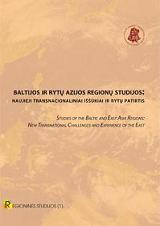Rejected Ostentation: “Refined Poverty” and its Perfection in the Tea Way Architecture
Rejected Ostentation: “Refined Poverty” and its Perfection in the Tea Way Architecture
Author(s): Greta GrendaitėSubject(s): Essay|Book Review |Scientific Life
Published by: Vytauto Didžiojo Universitetas
Keywords: ostentation; poverty; architecture; prabanga; skurdas; arcitektūra
Summary/Abstract: A sense of naturalism and plainness in the Taian architecture is genuine: nothing has been intentionally aged to create the timeworn-looking effect; the details, ex. planking of the nijiriguchi, are naturally weathered by time, thus looking old, thus even more venerable. Hereby a rustic manner of wabi aesthetics gets in exertion. Involving the “chazen-ichimi” concept, it also gives a sense to the major aspect of the Zen Buddhism tradition to simplify our lives, to get rid of the desire for possessions, thus leading the tea practitioner’s contemplation to an insight of what is “mu no basho”. Hence there is no wonder why the Taian has been reworked into a part of the Zen temple. If it has been said that the spiritual content meant more to Rikyu than a simple form, we may oppose to such an approach of the Japanese art historians now, concluding that the grand master respected the form equally, and the simple form gained spiritual content.
Journal: Regioninės studijos
- Issue Year: 2006
- Issue No: 1
- Page Range: 173-189
- Page Count: 17
- Language: English

